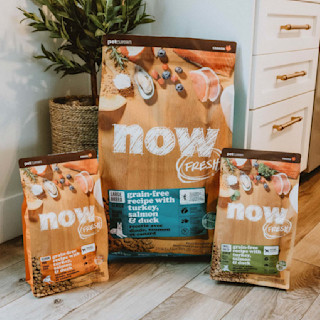March 28, 2025
Is Coconut Oil Good for Dogs?

Coconut oil has become a popular ingredient in pet food, praised for its potential health benefits. It’s highly palatable for dogs and has a pleasant, mild, coconut smell. But is coconut oil good for dogs? Can dogs eat coconut oil safely? And if so, how much should they have? Let’s dive into the facts and explore whether coconut oil is a smart addition to your dog’s diet.
What Is Coconut Oil?
Coconut oil is a type of fat derived from coconuts. It’s mostly made up primarily of saturated fats, with a large portion of these being a unique fat called medium chain triglycerides (MCT). In recent years, the positive health effects of MCTs have been studied, including anti-microbial properties1, weight management2, and ease of digestion3.
Unlike other fats that require enzymes from the pancreas to break down, MCTs are quickly absorbed and metabolized in the liver, where they’re converted into energy. This makes them an efficient fuel source for dogs, with added benefits for digestion and weight management.

Benefits of Coconut Oil for Dogs
The MCTs and lauric acid in coconut oil provide a range of potential health benefits for dogs:
1. Supports Good Digestion
A unique feature of coconut oil is the lauric acid content, which is a fatty acid that comprises a large component of the total fat content in coconut oil. Lauric acid has adverse effects on a variety of undesirable microorganisms including bacteria, yeast, fungi, and enveloped viruses. This can be beneficial for maintaining a healthy microbe population in the digestive tract, supporting the health of the microbiome and overall wellness.
2. Helps with Healthy Weight Support
Because MCTs are processed differently than long-chain fats, they are less likely to be stored as body fat. Instead, they provide a quick source of energy, making coconut oil a helpful dietary addition for dogs that need support in maintaining a healthy weight.
3. May Benefit Dogs at Risk of Pancreatitis
Since MCTs bypass the pancreas during digestion, coconut oil can be a good fat source for dogs that need a lower-fat diet due to pancreatitis concerns. However, always consult with your veterinarian before introducing new fats to your dog’s diet.

Our Recommendation
Premium Dog Food Made with Fresh Meats & Superfoods
Made with easily digested fresh meats and fish, and premium-quality superfoods like coconut oil, pomegranate, and pumpkin.
View dog foodSo, Can Dogs Eat Coconut Oil? Is It Safe?
Yes, dogs can have coconut oil, but moderation is key. Too much can lead to digestive upset and weight gain. The best way to incorporate coconut oil into your dog’s diet is through a high-quality dog food that incorporates it as an ingredient.
If you’re introducing coconut oil to your dog’s diet, start with a small amount and observe how they respond. Any food addition should never exceed 10% of your dog’s daily caloric intake. Always check with your vet when introducing new foods and to determine the right amount for your pet.
Marten, B., Pfeuffer, M., and Schrezenmeir, J. “Medium Chain Triglycerides.” International Dairy Journal Vol. 16(11). 2006.
Nasir, N., Abllah, Z., Jalaudin, A., Shahdan, I., and Manan, W. “Virgin Coconut Oil and Its Antimicrobial Properties against Pathogenic Microorganisms: A Review.” Advances in Health Sciences Research. 2018.
Samra, R.A. “Fats and Satiety.” Fat Detection: Taste, Texture, and Post Ingestive Effects. Boca Raton (FL): CRC Press/Taylor & Francis; 2010. https://pubmed.ncbi.nlm.nih.gov/21452477/.


